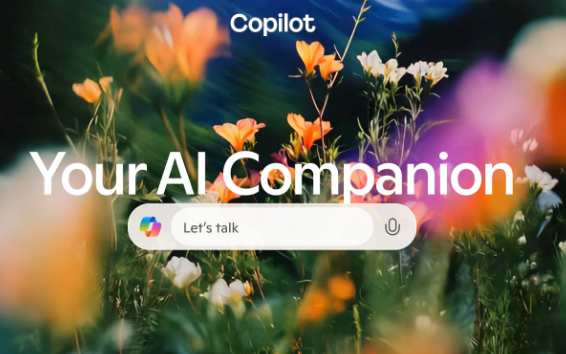Microsoft adds ChatGPT-style features to expand Copilot's capabilities

Copilot now includes memory features, real-time camera analysis, AI-generated podcasts, and more.
Microsoft is expanding its Copilot assistant with a range of new features, many of which resemble functions already available in ChatGPT. Others, however, are new additions that aim to personalize and extend the assistant’s capabilities.
Among the most significant updates is the introduction of a memory function. Copilot can now store information about users’ preferences and interests—such as favorite foods, movie genres, or birthdays. This data is used to build personal profiles that inform Copilot’s suggestions and enable proactive assistance. Users can manage what information is saved or opt out entirely via a dashboard.
Microsoft is also experimenting with customizable appearances for the assistant. Though still in early development, the feature would allow users to alter Copilot's visual presentation, potentially by using avatars.
A new feature called "Actions" lets Copilot carry out tasks on websites independently. For example, users can make restaurant reservations or send gifts by entering a simple text command. Initial launch partners include Booking.com, OpenTable, Tripadvisor, and Viator. The feature is designed to work across most websites and complete tasks without user intervention. It appears to be similar to ChatGPT's Operator.
Copilot Vision—an image and video analysis function—is also expanding. It is now available on iOS, Android, and Windows. On mobile devices, Copilot can use the camera to analyze surroundings in real time, such as offering interior design suggestions.
On Windows, Copilot will be able to recognize on-screen content and interact with it—for example, by adjusting settings, organizing files, or operating applications. The native Windows app is already available, and Vision is initially being released for Windows Insiders.
Copilot now includes "Deep Research," a feature similar to ones found in ChatGPT and Google Gemini, that analyzes and synthesizes information from multiple sources, including documents and images.
Microsoft is also introducing a content organization feature called "Pages." This tool helps users compile and edit their notes on a digital canvas, supporting them through the entire writing process—from initial concept to final draft.
AI-generated podcasts for on the go
In addition, Microsoft is adding the ability to create personalized podcasts, a feature not found in ChatGPT (yet) but available in Google's NotebookLM. Copilot can generate audio content that explains complex topics or analyzes studies based on user interests. Users can continue to interact with Copilot while listening. Microsoft says the goal is to make information consumption more convenient, though these audio systems are not immune to error.
A shopping function has also been added. It allows Copilot to act as a personal shopping assistant by surfacing discounts, comparing products, and offering purchasing options directly within the app. The feature is intended to support users in product research and facilitate informed buying decisions.
Microsoft is positioning its new "Copilot Search" to compete with Google, OpenAI’s ChatGPT search, and Perplexity. But AI-powered search has yet to gain broad adoption, and Microsoft has seen limited traction since launching its generative search tools in early 2023. Google, meanwhile, is testing out a revised AI search and expanding access to its "AI Overviews" summaries.
Microsoft says the new Copilot features are being rolled out gradually. Their availability will vary by platform, language, and market. Some, such as Vision for Windows, are initially limited to testers. The company plans to use user feedback to further refine these tools.
AI News Without the Hype – Curated by Humans
As a THE DECODER subscriber, you get ad-free reading, our weekly AI newsletter, the exclusive "AI Radar" Frontier Report 6× per year, access to comments, and our complete archive.
Subscribe nowAI news without the hype
Curated by humans.
- Over 20 percent launch discount.
- Read without distractions – no Google ads.
- Access to comments and community discussions.
- Weekly AI newsletter.
- 6 times a year: “AI Radar” – deep dives on key AI topics.
- Up to 25 % off on KI Pro online events.
- Access to our full ten-year archive.
- Get the latest AI news from The Decoder.